REU Mentors
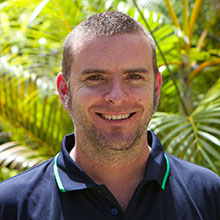
Baker, Ronnie, Ph.D
(James Cook University, Australia) Dr. Baker's research focuses on the functioning of coastal ecosystems, particularly their role in supporting fisheries. Current projects revolve around shoreline restoration, including evaluation of nekton communities, movements of sportfish, diets of ecologically important fish species, establishment of oysters, and long-term responses of fish communities to changing environments.
Read more rbaker@disl.edu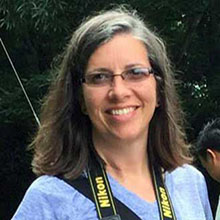
Carmichael, Ruth, Ph.D.
(Boston University, 2004). Research focuses on how human activities and pollution affect animals (oysters, horseshoe crabs, dolphins and manatees) and their habitats, using traditional ecological, elemental, and telemetry methods to understand responses to change, from physiology to growth and survival or movement patterns. Carmichael is the Director of the DISL Manatee Sighting Network and the Alabama Marine Mammal Stranding Network. Students in her laboratory can opt to work with a marine mammal veterinarian to conduct additional studies related to disease and causes of mortality in marine animals.
Read more rcarmichael@disl.edu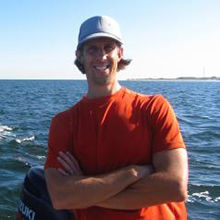
Dzwonkowski, Brian, Ph.D.
(University of Delaware 2009). Research interests lie in coastal physical oceanography (things related to the structure and flow of water (currents, tides, stratification) and how physical processes impact biogeochemical cycling and ecosystem function.
Read more bdzwonkowski@disl.edu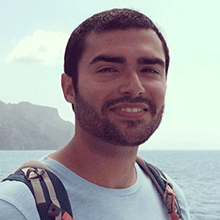
Hoadley, Kenneth D., Ph.D.
(University of Delaware, 2016). The transfer of energy and complex responses to climate perturbations within unique symbioses such as that between the dinoflagellate taxa (Symbiodiniaceae) and reef corals are of particular interest within the lab. Dr. Hoadley’s lab uses a combination of physiological measurements and molecular techniques to identify acclamatory and/or stress mitigating techniques employed by various phytoplankton species in response to environmental stress.
Read more khoadley@disl.edu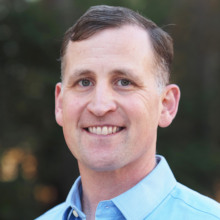
Krause, Jeffrey, Ph.D.
(Oregon State University, 2008). Research focuses on the productivity of diatoms (single-cell plankton), their biomass transfer to consumers (e.g. larval fish), and the climate feedbacks resulting from the geochemical transformation of their silica (glass) shell in sediments.
Read more jkrause@disl.edu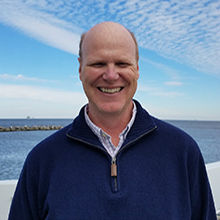
Lehrter, John, Ph.D.
(University of Alabama, 2003). Research focuses on understanding nutrient, organic matter, and oxygen cycling in coastal systems and how these cycles are related to aspects of water quality (eutrophication, hypoxia, coastal acidification). Research includes use of remotely sensed data and numerical modeling to aid coastal management.
Read more jlehrter@disl.edu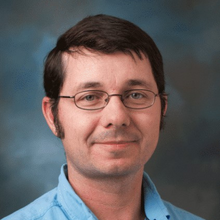
Martin, Charlie, Ph.D.
(University of South Alabama 2010) Research in the Martin lab focuses on the ecology of marine, estuarine, and freshwater areas, including the role of anthropogenic stressors in structuring these ecosystems. Recent projects have highlighted submerged vegetation and its potential for restoration, patterns in fish community composition variability across space and time, and the effects of tropical species moving into subtropical and temperate areas.
Read more cmartin@disl.edu
Phillips, Katrina F. Ph.D.
(University of Central Florida, 2022) Research focuses on animal movement and migratory species, particularly sea turtles. Current projects include genomic analyses related to sea turtle migratory types and studying epiphytes that live on turtles to learn about their feeding sites.
Read more kphillips@disl.edu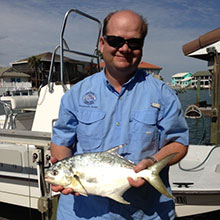
Powers, Sean, Ph.D.
(Texas A & M University, 1997). Research focuses on the ecology of marine fish and invertebrates, particularly those that support commercial and recreational fisheries. The ultimate goal of his research program is to provide scientifically sound information to direct the conservation and restoration efforts of marine fisheries and habitats.
Read more spowers@disl.edu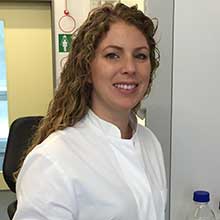
Kiel-Reese, Brandi, Ph.D.
(Texas A & M University, 2011). Research is interdisciplinary by bringing together Geology, Molecular Microbiology, and Geochemistry to provide a more integrated examination of aquatic and sediment biogeochemical cycling. Specifically specializes in combining state-of-the-art culture-independent molecular techniques (including metatranscriptomics and metagenomics) with high throughput culturing and advanced geochemical analysis to describe the total microbial environment. This systems biology approach to understanding microbial ecology has spanned marine and freshwater; shallow sediments within estuaries and coastal hypoxic zones; deeply buried continental mines and caves, and marine subsurface sediments through the International Ocean Discovery Program (IODP).
Read more bkielreese@disl.edu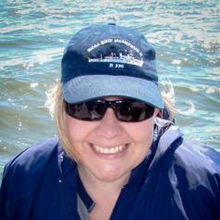
Robertson, Alison, Ph.D.
(James Cook University, Australia, 2005). Research focuses on toxicity and health impacts of natural toxins and human pollutants in marine and freshwater systems, particularly sub-lethal effects on behavior, reproduction, immune system, and nervous system function.
Read more arobertson@disl.edu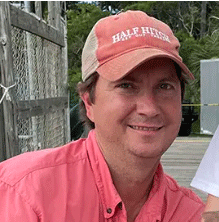
Scyphers, Steven, Ph.D.
(University of South Alabama, 2012)Research integrates sociology and ecology to better understand and overcome major challenges facing coastal communities. Current projects focus on sustainable coastal fisheries, living shorelines, and nature-based strategies for coastal resilience, coastal habitat and ecosystem restoration, and climate adaptation.
Read more sscyphers@disl.edu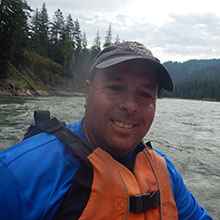
Smee, Lee, Ph.D.
(Georgia Institute of Technology, 2006) Research focuses on chemical signaling between predators and prey communities, including work related to oyster reef ecology, mangrove encroachment, pesticide effects on blue crabs, and biogeography of seagrass communities in the Gulf of Mexico.
Read more lsmee@disl.edu
Bowles, Marshall, Ph.D.
(University of Georgia, 2011). Dr. Marshall Bowles investigates the microbiology and geochemistry of salt marsh, coastal, and deep sea environments. His work focuses on understanding how microbes (e.g. bacteria), which are highly abundant in coastal waters, change or are changed by the chemistry in the environment around them.

Belgrad, Benjamin, Ph.D.
(University of South Carolina, 2017). Research investigates how animals respond to major environmental perturbations (e.g., marine heatwaves, habitat destruction) from the individual to community level. Current projects focus on improving the efficiency of oyster aquaculture and reef restoration operations as well as investigating the chemical signaling involved in predator-prey interactions. His work involves a wide range of approaches, from field and laboratory experiments, to physiological analyses and computer simulations.
bbelgrad@disl.edu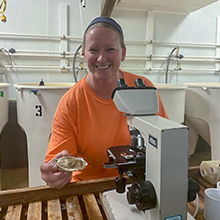
Tarnecki, Andrea, Ph.D.
(Auburn University, 2014). Research primarily addresses needs identified by the Alabama shellfish aquaculture industry and its stakeholders. The Tarnecki lab tests technology/practices that have the potential to alleviate challenges and bottlenecks encountered by the off-bottom oyster farming industry. Because of her training in microbiology, additional research interests include new and emerging shellfish diseases, harmful algal blooms, and seafood safety.
Read more atarnecki@disl.edu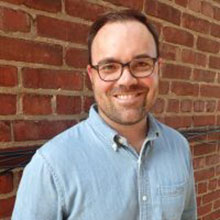
Titus, Ben, Ph.D.
(Ohio State University, 2017). Research in the Titus Lab uses the iconic mutualisms from tropical coral reefs to understand the evolutionary and ecological processes that generate biodiversity in these tightly linked interactions. We combine field research, systematics, and genomic approaches to understand mutualisms at all levels of biological organization.
Read more btitus@disl.edu